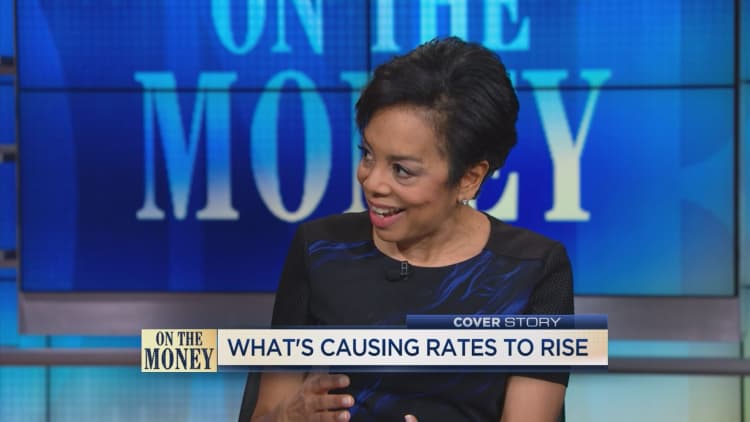
Seemingly everyone is on edge about the Federal Reserve's next moves — with reason.
Throughout the nearly nine-year bull market run, the Fed held rates near zero. But recent signs of rising inflation could push the central bank into hiking rates more aggressively, which will have far-reaching consequences for consumers.
"Inflation is accelerating and may well push interest rates higher, allowing the Fed to move policy rates three times this year, and perhaps even four," Rick Rieder, chief investment officer of global fixed income at BlackRock, said in a statement.
For the average American, the threat of rising interest rates isn't necessarily bad. It's generally considered a sign that the economy is doing well, which is what helped jump-start a wave of bonuses and may lead to more pay increases down the road.
"Financial markets shudder at the thought of higher inflation, simply because from an investment standpoint, inflation erodes the buying power of future earnings," said Greg McBride, chief financial analyst at Bankrate.com. For consumers, "a little bit of inflation is a good thing — that's what enables their boss to give them a raise."
A little bit of inflation is a good thing — that's what enables their boss to give them a raise.Greg McBrideBankrate's chief financial analyst
However, in your daily life, higher interest rates also mean that you'll have to pay up to access credit.
"For most consumers, rising interest rates — at least at this stage — don't impact your ability to borrow, only the rate you pay to borrow," McBride said.
That includes how much you pay in interest on credit cards or a home equity line of credit.
It will have decidedly less of an effect on how much you earn in interest on savings accounts because, even after a Fed rate hike, banks have little incentive to pass on any of the increase to their customers, which means interest on deposits on average likely will remain near rock bottom. But you may find significantly higher savings rates by shopping around and switching to an online bank.
If you're concerned about what this means for everything from your student loan tab to savings account, here's a breakdown of what could happen:
"On the Money" airs on CNBC Saturdays at 5:30 a.m. ET. Check listings for air times in local markets.
More from Personal Finance:
JPMorgan strategist calls Dow dive a reminder that 'there's no such thing as a free lunch' in market
How to ride out a wild stock market
Don't let the market swoon derail your retirement. What you can do



